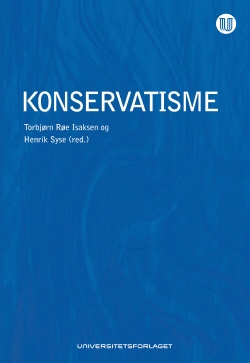 In the wake of the financial crisis, Time’s European edition ran a picture of Karl Marx on its front cover. The message was clear: after three decades of right-wing ascendancy and so-called neoliberalism, the wind had changed. The god of the free market was dead, as one Norwegian commentator summed up the situation. A few years later, we now see that that the radical left-wing camp is not in fact running the show in Europe. On the contrary. Social Democratic parties face an upward slog and voters are no longer moving toward the left.
In the wake of the financial crisis, Time’s European edition ran a picture of Karl Marx on its front cover. The message was clear: after three decades of right-wing ascendancy and so-called neoliberalism, the wind had changed. The god of the free market was dead, as one Norwegian commentator summed up the situation. A few years later, we now see that that the radical left-wing camp is not in fact running the show in Europe. On the contrary. Social Democratic parties face an upward slog and voters are no longer moving toward the left.While it may not necessarily be all that visible in our quiet home port in Europe’s north, Europe is caught up in a whirlwind of change. One reason that can be cited is the economic crisis and public sector spending cuts, which always follow on the heels of overspending. Yet Europe is also engaged in a fundamental discussion about its own identity and place in the world. For citizens and society, this broader debate opens up perspectives that are completely different from the discussion about the economy familiar from the previous decades. Perhaps this is why many feel Europe is experiencing a conservative renaissance. This is not an euphemism for reactionary impulses or xenophobia – although these can also be seen – but rather a political movement that aims to emphasize human values, rights and community, not systems and abstract goals.
In the last 30 years, parties under the conservative ensign have often done well at elections. But in practical policy making, liberalism and conservatism have largely merged in the right-wing camp, with the former has forced out the latter in many cases. Now conservative thought is again returning to prominence in European discourse, and the reason may be the increased role of communities outside the political and economic sphere. After the war in the trenches waged for decades by pro-market forces and pro-government forces, more and more are asking whether something is not being lost in the line of fire. We see examples of this in discussions about immigration and integration, where the role of culture is brought to the forefront as a counterweight to the view of man as rational maximizer as well as to the belief that the state’s well-being is sufficient for building a good society. Religion is again being taken seriously, both because it is hard to understand others without understanding their religion, and the fact that religion is behind our common historical backdrop and an ethical underpinning.
In addition, the discussions on capitalism have changed as well. Few doubt the claim that a healthy market economy is critical for a free and democratic society. But many are concerned that the capitalist mindset is emphasized too much in areas where it does not naturally belong. It is symbolic that British PM David Cameron emphasizes so clearly a need for community and belongingness, and some see these utterances as a repudiation of Thatcherite free market ideology. Cameron clearly makes conservative heritage his starting point. /... /
Conservatives believe that unalloyed liberalism, just as pure socialism, will have trouble coming to grips with the actual complexity of society and people’s actual needs. The great strength of liberalism is that it is rational and emphasizes individual liberty; but it is a poor choice for explaining why community is so important for people and why rapid changes could lead to loss of security and unrest – even if the changes seem like reasonable ones. The great strength of socialism is solidarity with the weak and its optimistic belief that people can steer developments through policy. But socialism has a tendency to overlook aspects of society that lie outside the markets and state – the aspects that de Tocqueville called “intermediate communities” –family, congregation, local community and organizations.
The first hallmark of conservatism has always been anti-utopianism. The British historian and philosopher Anthony Quinton described conservatism as “the politics of infallibility”. People embody both good and bad tendencies. The goal of authority and politics is not to build a new Jerusalem, third Reich, classless society or earthly paradise, but to patiently and prudently make better the society we are living in, while protecting the higher ground that people need above their lives. Politics is imperfect by its nature; more a blunt knife than a surgeon’s scalpel. A conservative statesman is not an engineer or architect. He or she is a housekeeper. Critics are fond of noting that many conservatives have for centuries defended a number of institutions that have now outlived their usefulness, from autocratic monarchy to the aristocracy. But if we want to understand why conservatism continues to be relevant, it might be more interesting to look at it the other way around. Why are many of the institutions that conservatives have defended still with us today – from the Norwegian Council of State (selected by the monarch) to the church and the rule of law? Perhaps conservatism is returning to centre stage today because conservative thinkers have laid emphasis on that which seems stable and familiar at watershed moments.
Torbjørn Røe Isaksen and Henrik Syse are the editors of Konservatisme






